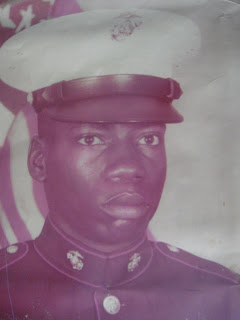I just had the privilege of watching The Boy in the Striped Pajamas and I am almost speechless...almost. The film is set in the midst of Hitler's Germany during WWII. The main character is an eight year-old boy, Bruno whose father is the commanding officer of a concentration camp. We are granted to to view the situation through the eyes of innocent little Bruno as he tries to make sense of this very terribly confusing ordeal. I watched the movie with a group of pastors seeking to utilize the film as a springboard for a discussion on the ethics and theological themes that are represented. There are numerous powerful concepts. I couldn't possibly exhaust them all here. Nevertheless, here are a few:
Loss
Everybody loses in this film. I will be careful not to spoil the plot, but there is a whole lot of loss throughout. Loss of life, identity, homeland, freedom, family, friendship, etc. However, one of the primary losses is Bruno's loss of innocence. Poor little Bruno has to grapple with the conflict between the heroism he expects from his father, and the fact that his father is responsible for this morally depraved situation he's witnessing.
Dehumanization
I am reminded of Mrs. Krauer's 12th grade literature class wherein she made us read Elie Wiesel's Night. I remember writing a term paper for the class which required us to discuss how Wiesel deals with this concept of dehumanization. Striped Pajamas makes this concept crystal clear. Simply put, the Germans thought the Jews were scum. I think "filthy worthless vermin" was the specific phrase that was employed. If you are anything less than a human being, then there is no need for restraint against the despicable things I might do to you.
Imprisonment
Hate imprisons us. And this is where it gets really sad b/c the true prisoners in the movie are the Germans. They are the ones who are mentally enslaved by propaganda and public opinion. They are the ones who are locked in their own home; unable to relate and reach out to the world around them. They are the ones who are not free to love, listen, and learn from others. And although he is a "free" German, Bruno is actually the boy in the striped pajamas...of hate.
There is so much more in the film, but I suppose the most beneficial word I can say about it is...watch it! After watching it myself, I am definitely impressed to love more deeply and freely. I see again the depth of the destructive power of bigotry and racism. I see the the power of friendship and forgiveness. I am convinced to shed the prison pajamas of hate.
During our discussion, one of the pastors shared a story of his terrible upbringing and the hate that he harbored in his heart toward his family because of it. He said he was suffering with cancer and ulcers that he was told was killing him. In part of the process of preparing to die, he went to make amends and apologize to a number of his relatives. He did and shortly thereafter he went back to the doctor and found that his ulcers were all gone. And years later, he's still living, cancer appears to be in remission, and health seems to be under control. Hate kills, but love sets the captives free.










